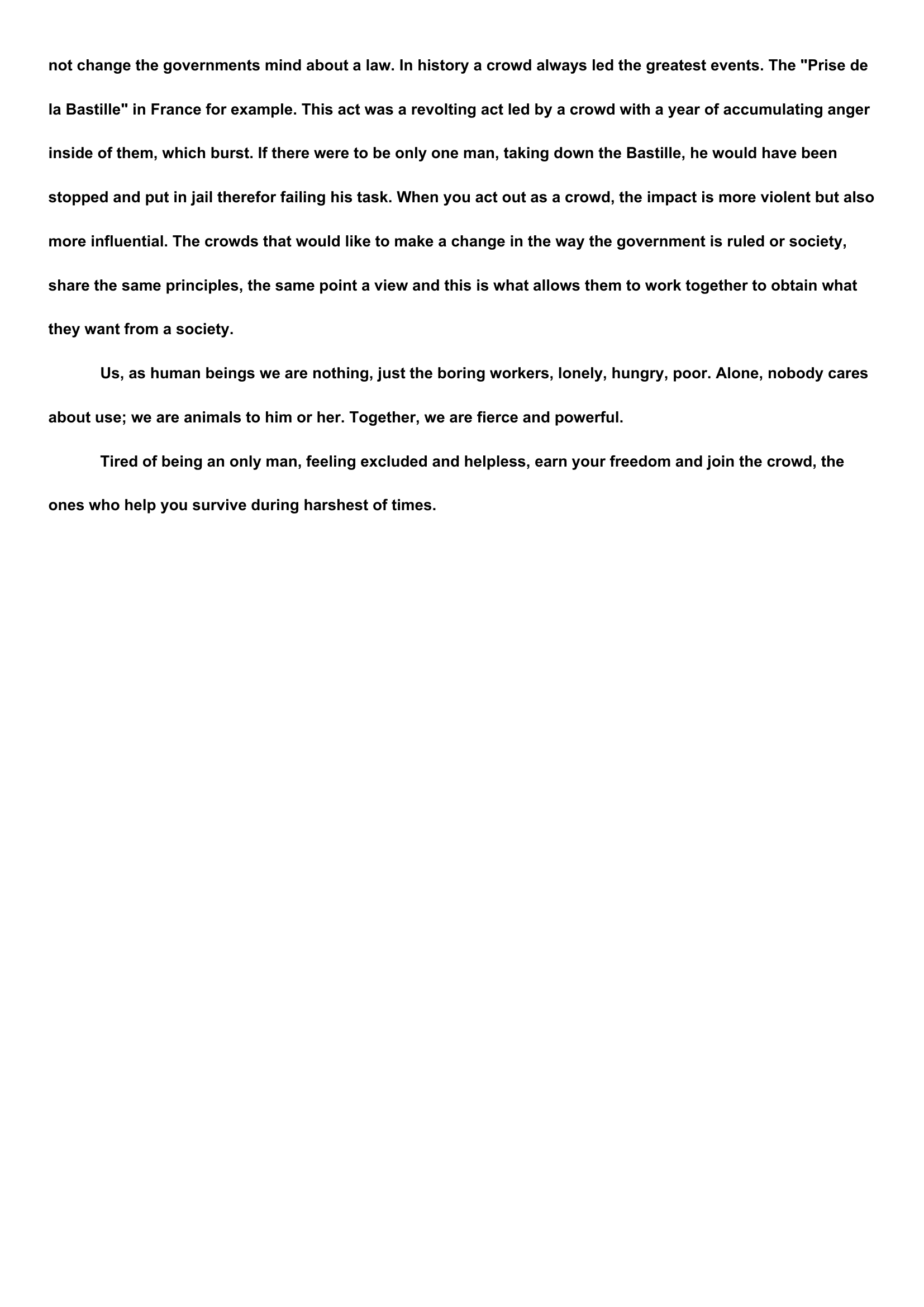L'espionnage
Publié le 05/04/2014
Extrait du document
«
not change the governments mind about a law.
In history a crowd always led the greatest events.
The "Prise de
la Bastille" in France for example.
This act was a revolting act led by a crowd with a year of accumulating anger
inside of them, which burst.
If there were to be only one man, taking down the Bastille, he would have been
stopped and put in jail therefor failing his task.
When you act out as a crowd, the impact is more violent but also
more influential.
The crowds that would like to make a change in the way the government is ruled or society,
share the same principles, the same point a view and this is what allows them to work together to obtain what
they want from a society.
Us, as human beings we are nothing, just the boring workers, lonely, hungry, poor.
Alone, nobody cares
about use; we are animals to him or her.
Together, we are fierce and powerful.
Tired of being an only man, feeling excluded and helpless, earn your freedom and join the crowd, the
ones who help you survive during harshest of times.
.
»
↓↓↓ APERÇU DU DOCUMENT ↓↓↓
Liens utiles
- Composition Affaire Dreyfus et République Accusé d’espionnage
- SDECE (Service de documentation extérieure et de contre-espionnage), « service secret » qui a pris la suite, en 1947, de la Direction générale des services spéciaux.
- contre-espionnage (armée).
- espionnage.
- Définition: ESPIONNAGE, substantif masculin.

































